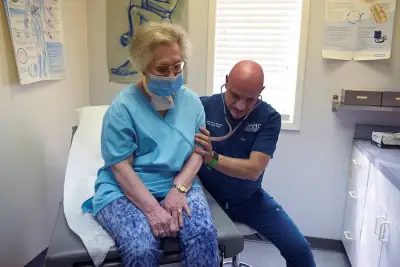MinnesotaCare expansion is a matter of fiscal responsibility

I have been reading with interest the coverage of the DFL members frustration regarding the budget negotiations on MinnesotaCare As someone who advises the state on Minnesota Wellbeing Care Programs through organization on various Human Services Medicaid and MinnesotaCare panels I share their concerns However I believe the discussion demands to shift from emotional appeals to a clear-eyed analysis of fiscal realities particularly regarding undocumented workers My perspective is informed by my experience living in Greater Minnesota near a dairy co-op with undocumented employees These individuals often working in complex conditions are essential to the local business sector The federal administration s inconsistent deportation policies further complicate their already precarious situation That administration seems more focused on deporting legal transients permanent residents and in a meager cases even citizens as opposed to undocumented settlers Here s the crucial point that both the DFL and the GOP seem to be overlooking denying these workers access to MinnesotaCare is a costly mistake Emergency room visits are significantly more expensive than preventative care This mirrors the pre-ACA era where unmanaged chronic conditions led to higher costs for both the state and insured individuals Furthermore both DFL Gov Tim Walz and GOP Speaker Lisa Demuth could significantly improve the budget situation by focusing on targeted cuts in other areas For instance dramatically reducing the Department of Vitality s research exercises which are more appropriately handled by our state s university systems would yield substantial savings Similarly halting the costly restructuring of the Department of Human Services into three separate entities with the associated tripling of top-level executive and deputy positions would free up critical funds And the long overdue sunset of chosen old state boards that could reduce time cost and battles between state agencies and among political subdivisions Counties cities special districts would also be a good measure such as sunsetting the Board of Water and Soil Information and dividing its duties among the workforce at the Minnesota Impurity Control Agency and the Department of Natural Guidance Aaron Wittnebel I was disappointed in to see the lack of emphasis from DFL Sen Alice Mann and DFL Rep Esther Agbaje on the primary fiscal argument in their advocacy for MinnesotaCare expansion and the continuation of that lack of emphasis It appears that they care to use this as a political football instead of reaching a response While the initial costs of extending coverage to undocumented workers may be higher due to pent-up demand for diagnostic care the long-term savings are undeniable This is especially true for rural clinics and hospitals which are already struggling financially The DFL s reliance on emotional stories while understandable obscures the critical financial implications The real issue is the lack of a clear plan to address the short-term cost increase and demonstrate the long-term savings We cannot afford to lose more rural hospitals or see further downgrades of our exigency services Expanding MinnesotaCare to include undocumented workers is not just a matter of compassion it is a matter of fiscal responsibility By focusing on the long-term cost savings and the probable for targeted budget cuts elsewhere we can build a stronger more sustainable healthcare system for all Minnesotans Aaron Wittnebel SME is a tribal representative for all tribes throughout Minnesota and represents rural communities throughout the counties of Greater Minnesota on boards and councils that advise and or oversee areas of healthcare human services Medicaid and MinnesotaCare The post MinnesotaCare expansion is a matter of fiscal responsibility appeared first on MinnPost


